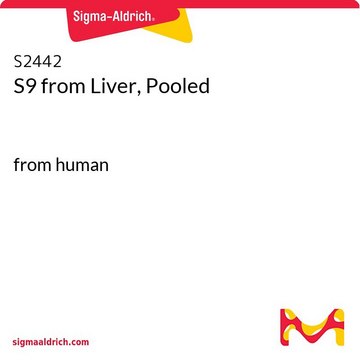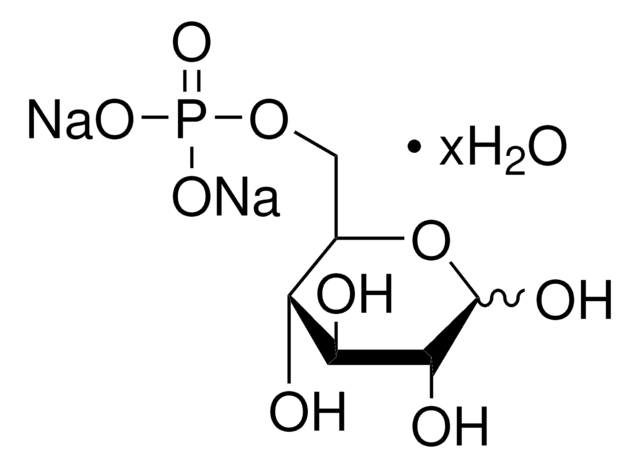S2192
S9 from Liver, Pooled
from mouse(CD-1), male, 20 mg/mL protein basis, vial of 1.0 mL
Sign Into View Organizational & Contract Pricing
All Photos(1)
About This Item
UNSPSC Code:
12161501
NACRES:
NA.47
Recommended Products
biological source
mouse (CD-1)
Quality Level
packaging
vial of 1.0 mL
concentration
20 mg/mL protein
UniProt accession no.
shipped in
dry ice
storage temp.
−70°C
Gene Information
mouse ... Rps9(76846)
Looking for similar products? Visit Product Comparison Guide
Biochem/physiol Actions
The hepatic S9 pools from a variety of biological sources represent the post-mitochondrial supernatant fraction from homogenized liver. Known to be a rich source of drug metabolizing enzymes including P-450, these pools are useful in the study of xenobiotic metabolism and drug interactions.
The hepatic S9 pools from a variety of biological sources represent the post-mitochondrial supernatant fraction from homogenized liver. They are known to be a rich source of drug metabolizing enzymes including P-450. S9 pools are useful in the study of xenobiotic metabolism and drug interactions. They are used in the Ames test, which is a method that uses bacteria to test if a given chemical causes mutations in the genetic material of a given test organism.
Physical form
Supplied as a solution in 150 mM KCl, 50 mM Tris buffer, pH 7.2 and 2 mM EDTA.
Storage Class Code
10 - Combustible liquids
WGK
WGK 2
Flash Point(F)
Not applicable
Flash Point(C)
Not applicable
Personal Protective Equipment
dust mask type N95 (US), Eyeshields, Gloves
Certificates of Analysis (COA)
Search for Certificates of Analysis (COA) by entering the products Lot/Batch Number. Lot and Batch Numbers can be found on a product’s label following the words ‘Lot’ or ‘Batch’.
Already Own This Product?
Find documentation for the products that you have recently purchased in the Document Library.
The Ames Salmonella/microsome mutagenicity assay.
Mortelman K and Zeiger E
Mutation Research, 455(1-2), 29-60 (2000)
An improvement of the Ames test using a modified human liver S9 preparation.
Hakura A
Journal of Pharmacological and Toxicological Methods, 46(3), 169-172 (2001)
Our team of scientists has experience in all areas of research including Life Science, Material Science, Chemical Synthesis, Chromatography, Analytical and many others.
Contact Technical Service




